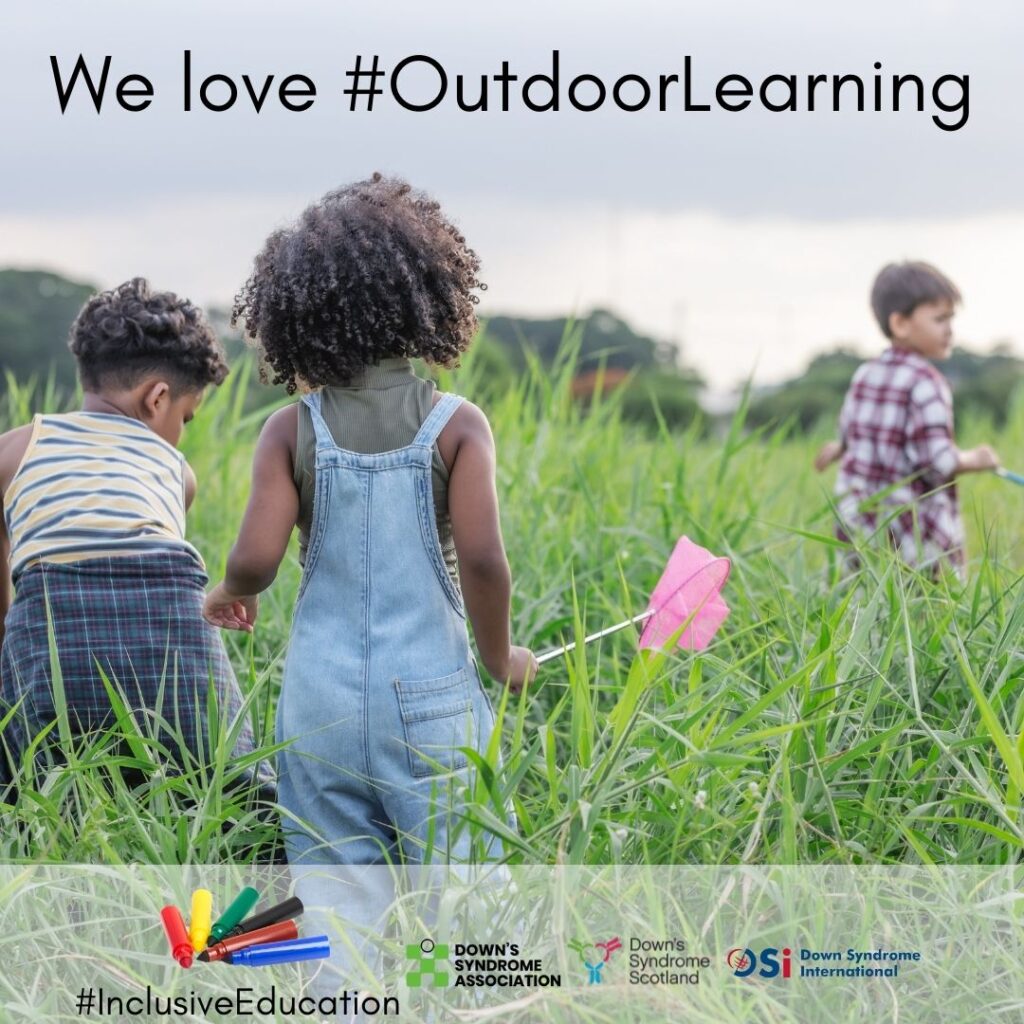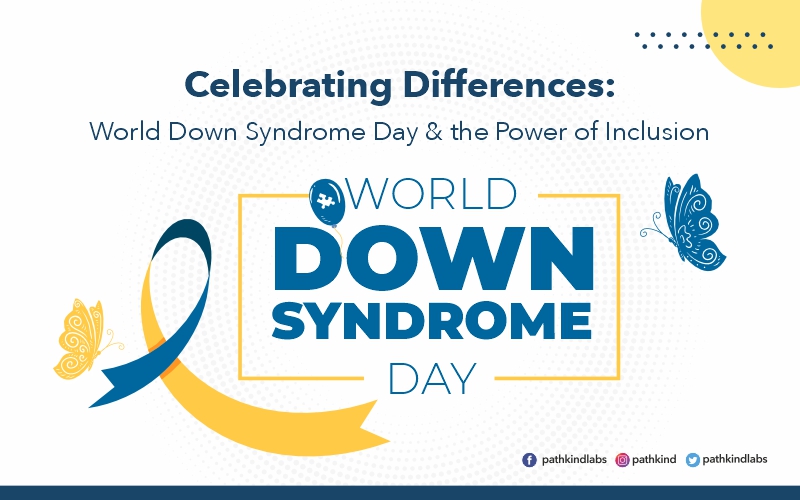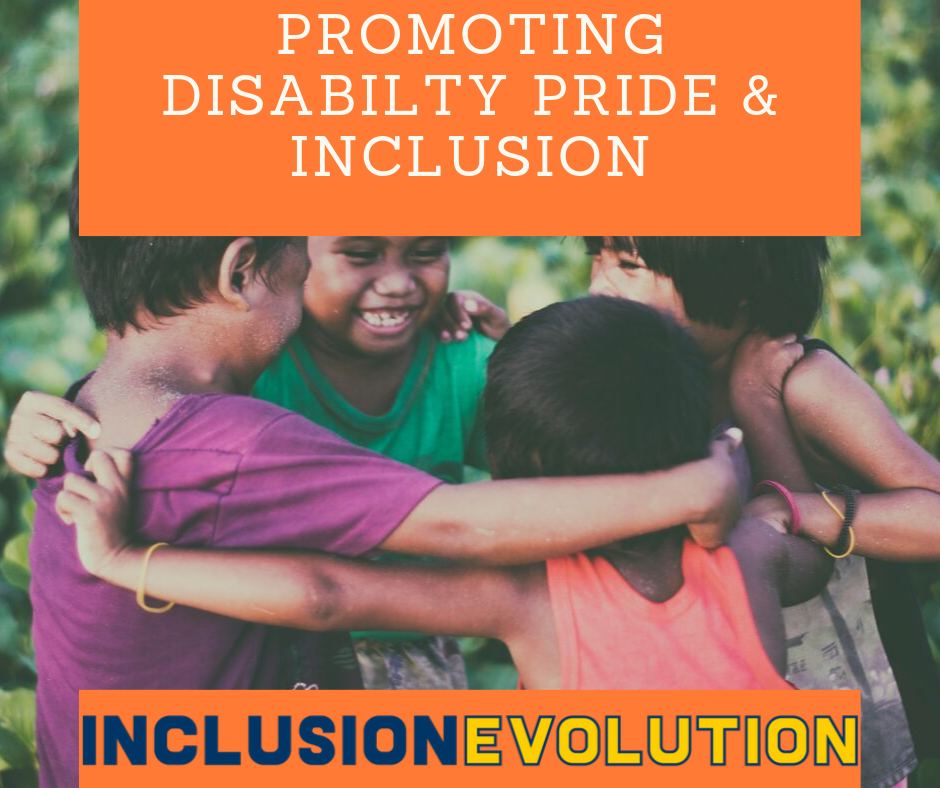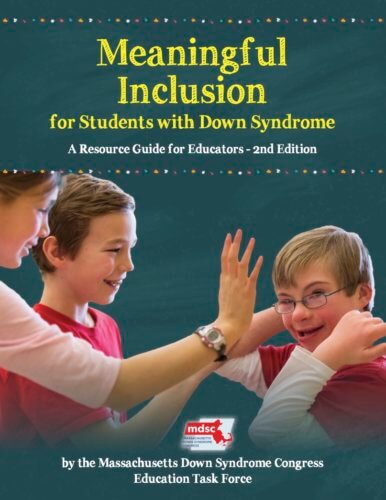In this article, we will explore the importance of promoting inclusion for individuals with Down’s Syndrome. Down’s Syndrome is a genetic disorder that affects a person’s cognitive abilities and physical development, but it does not define their potential. By fostering an inclusive and accepting society, we can create opportunities for individuals with Down’s Syndrome to thrive and lead fulfilling lives. Join us as we delve into the various ways we can support and advocate for those with Down’s Syndrome in our communities.

Understanding Down’s Syndrome
What is Down’s Syndrome?
Down’s Syndrome, also known as Trisomy 21, is a genetic disorder that occurs due to the presence of an extra copy of the 21st chromosome. This extra genetic material affects the way a person’s body and brain develop, leading to intellectual and physical disabilities. Down’s Syndrome is a lifelong condition, but with the right support and opportunities, individuals with Down’s Syndrome can lead fulfilling and independent lives.
Causes of Down’s Syndrome
The primary cause of Down’s Syndrome is the presence of an extra copy of the 21st chromosome. This genetic abnormality occurs randomly during the formation of reproductive cells or in early embryonic development. While the exact cause is unclear, advancing maternal age is a known risk factor, as the likelihood of having a child with Down’s Syndrome increases with age. However, it is important to note that individuals of any age can have a child with Down’s Syndrome.
Symptoms and Characteristics
Individuals with Down’s Syndrome often exhibit certain physical and intellectual characteristics. These may include almond-shaped eyes, a flat facial profile, a shorter stature, and low muscle tone. In terms of intellectual functioning, individuals with Down’s Syndrome may have mild to moderate learning disabilities, delayed speech and language development, and varying degrees of cognitive impairment. It is worth noting that while there are common features, each person with Down’s Syndrome is unique and will have their own strengths and abilities.
Prevalence and Statistics
Down’s Syndrome is one of the most common genetic disorders, occurring in approximately one in every 700 births worldwide. The prevalence of Down’s Syndrome varies across different populations and is not influenced by factors such as race, nationality, or socioeconomic status. With advancements in medical care and support systems, individuals with Down’s Syndrome are living longer and leading more fulfilling lives than ever before.
Importance of Inclusion
Defining Inclusion
Inclusion is the practice of ensuring that individuals with Down’s Syndrome are valued members of society, with equal opportunities to participate in all aspects of life, including education, employment, social activities, and community engagement. Inclusion recognizes the inherent worth and potential of every person, regardless of their abilities or disabilities, and fosters an environment of acceptance and support.
Benefits of Inclusion for Individuals with Down’s Syndrome
Inclusion has numerous benefits for individuals with Down’s Syndrome. It provides them with the opportunity to develop meaningful relationships, improve social skills, and enhance their self-esteem and self-confidence. Inclusive environments also promote the development of essential life skills, independence, and employment opportunities. Furthermore, being included in society enriches their overall well-being and quality of life.
Benefits of Inclusion for Society
Inclusion benefits society as a whole by promoting diversity, acceptance, and understanding. When individuals with Down’s Syndrome are included in educational settings, workplaces, and communities, it encourages the acceptance of differences and fosters a sense of empathy and compassion. Inclusive societies have the opportunity to harness the unique talents and contributions of individuals with Down’s Syndrome, leading to increased innovation, creativity, and overall social progress.

Early Intervention and Education
Early Intervention Programs
Early intervention programs play a crucial role in supporting the development of children with Down’s Syndrome from an early age. These programs provide specialized therapies, such as speech, physical, and occupational therapy, tailored to meet the specific needs of each child. Early intervention aims to minimize developmental delays, enhance cognitive and motor skills, and promote social and emotional well-being.
Importance of Early Education
Early education is essential for children with Down’s Syndrome as it lays the foundation for their learning and development. High-quality early education programs provide a structured and inclusive environment where children can develop various skills, including communication, social interaction, and cognitive abilities. Such programs also equip parents and caregivers with the knowledge and skills needed to support their child’s learning at home.
Individualized Education Plans (IEPs)
Individualized Education Plans (IEPs) are a vital tool for ensuring that students with Down’s Syndrome receive appropriate educational support and accommodations. An IEP is a personalized document that outlines the child’s learning goals, specifies the specialized services they require, and identifies any necessary accommodations or modifications. With an IEP in place, educators can tailor instruction and support to meet the unique needs of each student with Down’s Syndrome.
Inclusive Education Models
Inclusive education models aim to provide students with Down’s Syndrome the opportunity to learn alongside their typically developing peers. Inclusion benefits students with Down’s Syndrome by promoting social integration, fostering peer relationships, and encouraging academic growth. Inclusive classrooms require effective collaboration between educators, specialized support staff, and families to ensure that appropriate accommodations and support services are provided.
Supportive Services and Accommodations
Supportive services and accommodations are essential to enable individuals with Down’s Syndrome to thrive in educational environments. These may include assistive technology devices, speech and language therapy, social skills training, and curriculum modifications. In addition, educators can implement strategies such as visual supports, flexible scheduling, and modified assignments to ensure that students with Down’s Syndrome can fully participate in classroom activities and reach their full potential.
Promoting Social Inclusion
Creating Inclusive Communities
Creating inclusive communities is crucial for promoting the social inclusion of individuals with Down’s Syndrome. This involves cultivating a welcoming and accepting environment where people of all abilities feel valued and respected. Inclusive communities can enhance social integration by offering accessible public spaces, ensuring transportation inclusivity, and organizing community events that celebrate diversity and promote participation from everyone.
Promoting Acceptance and Understanding
Promoting acceptance and understanding is key to fostering inclusivity for individuals with Down’s Syndrome. Education and awareness campaigns can help dispel stereotypes and misconceptions, providing accurate information about Down’s Syndrome and creating a culture of empathy and respect. Schools, workplaces, and community organizations can organize workshops, seminars, and awareness programs to promote understanding and encourage meaningful inclusion.
Supporting Peer Relationships
Encouraging and supporting peer relationships is vital for the social well-being of individuals with Down’s Syndrome. Interactions with typically developing peers help foster social skills, build friendships, and create a sense of belonging. By encouraging inclusive playtime, group activities, and collaborative projects, schools and community organizations can facilitate positive and meaningful relationships amongst children and adults alike.
Involvement in Recreational Activities
Involvement in recreational activities is instrumental in promoting the social inclusion of individuals with Down’s Syndrome. Participating in sports, arts, and cultural activities provides opportunities for individuals with Down’s Syndrome to develop skills, explore interests, and engage with their peers. Community organizations, sports clubs, and recreational facilities can create inclusive programs and adapt activities to ensure that individuals with Down’s Syndrome can fully participate and enjoy recreational experiences.

Employment Opportunities
Advocating for Inclusive Employment
Advocating for inclusive employment is crucial for creating equal opportunities for individuals with Down’s Syndrome in the workplace. Employers, business owners, and policymakers should actively promote and support the inclusion of individuals with Down’s Syndrome, recognizing their abilities and talents. By embracing diversity and providing reasonable accommodations, companies can tap into a valuable pool of potential employees and contribute to a truly inclusive workforce.
Supported Employment Programs
Supported employment programs play a vital role in assisting individuals with Down’s Syndrome in securing and maintaining meaningful employment. These programs provide job coaching, vocational training, and ongoing support tailored to the individual’s needs. Supported employment not only benefits individuals with Down’s Syndrome by fostering independence and financial stability but also contributes to a more inclusive society by breaking down barriers to employment for people with disabilities.
Developing Skills for Employment
Developing skills for employment is essential for individuals with Down’s Syndrome to succeed in the workplace. Transition programs that focus on vocational training, job skills development, and internships can prepare individuals with Down’s Syndrome for the challenges and responsibilities of work. These programs provide hands-on experiences and equip individuals with the necessary skills and confidence to excel in their chosen career paths.
Reasonable Accommodations in the Workplace
Offering reasonable accommodations in the workplace is critical to ensuring equal opportunities for individuals with Down’s Syndrome. Reasonable accommodations may include flexible work schedules, assistive technology, modified job tasks, or job coaches. By providing these accommodations, employers can create a supportive and accessible work environment where individuals with Down’s Syndrome can showcase their abilities and contribute meaningfully to the organization.
Promoting Health and Well-being
Access to Healthcare
Access to quality healthcare is essential for the overall health and well-being of individuals with Down’s Syndrome. Regular medical check-ups, screenings, and appropriate medical interventions are crucial to address any associated health conditions that individuals with Down’s Syndrome may experience, including heart defects, hearing and vision impairments, and thyroid dysfunction. By ensuring equal access to healthcare services, we can support the optimal health of individuals with Down’s Syndrome.
Physical and Mental Health Support
Promoting physical and mental health support is vital for individuals with Down’s Syndrome to lead fulfilling lives. Access to specialized healthcare professionals, such as physiotherapists and psychologists, can help address any physical or mental health challenges. Furthermore, promoting healthy lifestyles, including regular exercise, a balanced diet, and mental well-being practices, can support the overall health and enhance the quality of life for individuals with Down’s Syndrome.
Encouraging Active Lifestyles
Encouraging individuals with Down’s Syndrome to lead active lifestyles is crucial for their overall health and well-being. Regular physical activity not only improves fitness levels but also enhances coordination, motor skills, and social interaction. By providing accessible sports and recreational opportunities and promoting participation in adapted activities, individuals with Down’s Syndrome can enjoy the benefits of an active lifestyle.
Providing Comprehensive Therapy Services
Providing comprehensive therapy services is essential for individuals with Down’s Syndrome to reach their full potential. Speech therapy helps improve communication skills, occupational therapy promotes independence in daily activities, and physical therapy enhances gross and fine motor skills. By ensuring access to these therapy services, individuals with Down’s Syndrome can develop the necessary skills to navigate various aspects of life and maximize their independence.

Supporting Families
Emotional Support for Parents and Caregivers
Emotional support for parents and caregivers is critical as they navigate the challenges and joys of raising a child with Down’s Syndrome. Connecting parents with support groups, counseling services, and access to information about Down’s Syndrome allows them to share experiences, seek guidance, and develop coping strategies. By providing emotional support, we can empower parents and caregivers to provide the best care and support for their child.
Accessible Information and Resources
Providing accessible information and resources is essential for families impacted by Down’s Syndrome. Access to accurate and up-to-date information about Down’s Syndrome, available support services, and inclusive educational opportunities can help parents make informed decisions and advocate effectively for their child. Organizations and healthcare providers should ensure the availability of accessible resources, both online and in print, to support families in their journey.
Building Support Networks
Building support networks for families is crucial to alleviate feelings of isolation and foster a sense of community. Connecting families impacted by Down’s Syndrome with others who share similar experiences can provide a valuable support system. Local support groups, online communities, and parent-led organizations can offer support, advice, and a sense of belonging to families raising a child with Down’s Syndrome.
Family-Centered Care
Family-centered care is a holistic approach that acknowledges the importance of involving families as partners in the care and support of individuals with Down’s Syndrome. Healthcare professionals, educators, and service providers should collaborate with families, respecting their knowledge and preferences, and involving them in decision-making processes. By embracing family-centered care, we can ensure that the needs of individuals with Down’s Syndrome and their families are met holistically and effectively.
Raising Awareness and Advocacy
National and International Down Syndrome Organizations
National and international Down Syndrome organizations play a vital role in raising awareness, advocating for the rights of individuals with Down’s Syndrome, and promoting inclusive practices. These organizations provide resources, support networks, and information about Down’s Syndrome to individuals, families, healthcare providers, educators, and policymakers. Their advocacy efforts contribute to shaping legislation, policies, and public perception towards creating a more inclusive society.
Promoting Awareness Campaigns
Awareness campaigns are instrumental in dispelling myths, changing societal attitudes, and challenging stereotypes about Down’s Syndrome. These campaigns often include activities such as World Down Syndrome Day, awareness walks, and social media campaigns to promote inclusivity and highlight the achievements, abilities, and contributions of individuals with Down’s Syndrome. By engaging in awareness campaigns, we can create a more inclusive society that celebrates and values the diversity of all individuals.
Engaging the Media
Engaging the media is a powerful tool for raising awareness and promoting inclusion for individuals with Down’s Syndrome. Positive portrayals of individuals with Down’s Syndrome in TV shows, movies, and advertisements help challenge stereotypes and foster acceptance and understanding. Media outlets can play a crucial role in amplifying diverse voices and showcasing inclusive stories, thereby shifting public perception and promoting a more inclusive society.
Educating the General Public
Educating the general public about Down’s Syndrome is essential to create a society that embraces diversity and inclusion. Schools, community organizations, and healthcare providers can organize educational programs, workshops, and presentations to provide accurate information about Down’s Syndrome, its characteristics, and the capabilities of individuals with Down’s Syndrome. By fostering a more informed and educated society, we can break down barriers and cultivate a truly inclusive environment for individuals with Down’s Syndrome.

Legislation and Policies
Inclusive Education Laws
Inclusive education laws are vital for ensuring that individuals with Down’s Syndrome have equal access to quality education. These laws protect the rights of individuals with disabilities, including Down’s Syndrome, to receive an education in the least restrictive environment. Inclusive education laws emphasize the provision of necessary accommodations, specialized support services, and the integration of students with Down’s Syndrome into mainstream classrooms, promoting inclusive educational practices and equal opportunities.
Anti-Discrimination Laws
Anti-discrimination laws play a crucial role in protecting the rights of individuals with Down’s Syndrome in various areas of life, including employment, housing, healthcare, and public accommodations. These laws prohibit discrimination based on disability and ensure that individuals with Down’s Syndrome have equal access to opportunities and services. By enacting and enforcing strong anti-discrimination laws, we can create a fair and inclusive society that values the rights and dignity of all individuals.
Disability Rights Legislation
Disability rights legislation is essential for safeguarding the rights and well-being of individuals with Down’s Syndrome. These laws focus on promoting equal opportunities, accessibility, and non-discrimination for individuals with disabilities. Disability rights legislation often covers areas such as education, employment, healthcare, transportation, and accessibility. By enacting comprehensive disability rights legislation, we can ensure that individuals with Down’s Syndrome are protected and empowered to fully participate in society.
Accessible Infrastructure and Transportation
Ensuring accessible infrastructure and transportation is crucial for the inclusion and participation of individuals with Down’s Syndrome in society. Public buildings, transportation systems, recreational facilities, and public spaces should be designed to accommodate the needs of individuals with disabilities. Wheelchair ramps, accessible restrooms, tactile signage, and accessible public transportation are just a few examples of the measures that can enhance accessibility and promote inclusivity for individuals with Down’s Syndrome.
Partnerships and Collaboration
Collaborating with Disability Organizations
Collaborating with disability organizations is essential for fostering inclusivity for individuals with Down’s Syndrome. These partnerships enable the sharing of resources, expertise, and best practices in supporting individuals with disabilities, including Down’s Syndrome. By working together, disability organizations, healthcare providers, educators, and community leaders can create a comprehensive support network that advocates for the rights and well-being of individuals with Down’s Syndrome.
Engaging with Schools and Educators
Engaging with schools and educators is critical for promoting inclusive practices and ensuring that students with Down’s Syndrome receive appropriate support and accommodations. Collaborating with educators allows for the exchange of knowledge, ideas, and strategies to create inclusive classrooms that meet the diverse needs of all students. By fostering effective partnerships between schools, educators, and families, we can create an inclusive educational experience for individuals with Down’s Syndrome.
Government and Non-Profit Partnerships
Partnerships between governments and non-profit organizations are instrumental in advancing inclusion for individuals with Down’s Syndrome. Governments can provide financial support, enact disability-friendly policies and legislation, and collaborate with non-profit organizations to coordinate services and initiatives. On the other hand, non-profit organizations can leverage the resources and expertise of the government to implement programs and advocate for the rights of individuals with Down’s Syndrome. Through collaboration, we can achieve meaningful and lasting change.
Corporate Social Responsibility Initiatives
Corporate social responsibility initiatives play a vital role in fostering inclusivity in the workplace and society at large. Companies can actively promote the inclusion of individuals with Down’s Syndrome by implementing inclusive hiring practices, providing training and support for employees, and creating accessible work environments. By prioritizing diversity and embracing inclusive practices, businesses can lead the way in advocating for the rights and inclusion of individuals with Down’s Syndrome.
In conclusion, promoting inclusion for individuals with Down’s Syndrome is not just a matter of justice and fairness; it is an opportunity to build a society that values diversity and embraces the contributions of every individual. By understanding Down’s Syndrome, advocating for inclusive practices, and providing the necessary support and opportunities, we can create a world where individuals with Down’s Syndrome can thrive, participate fully, and lead meaningful and fulfilling lives. Together, we can create an inclusive society where everyone’s abilities and potential are celebrated and nurtured.